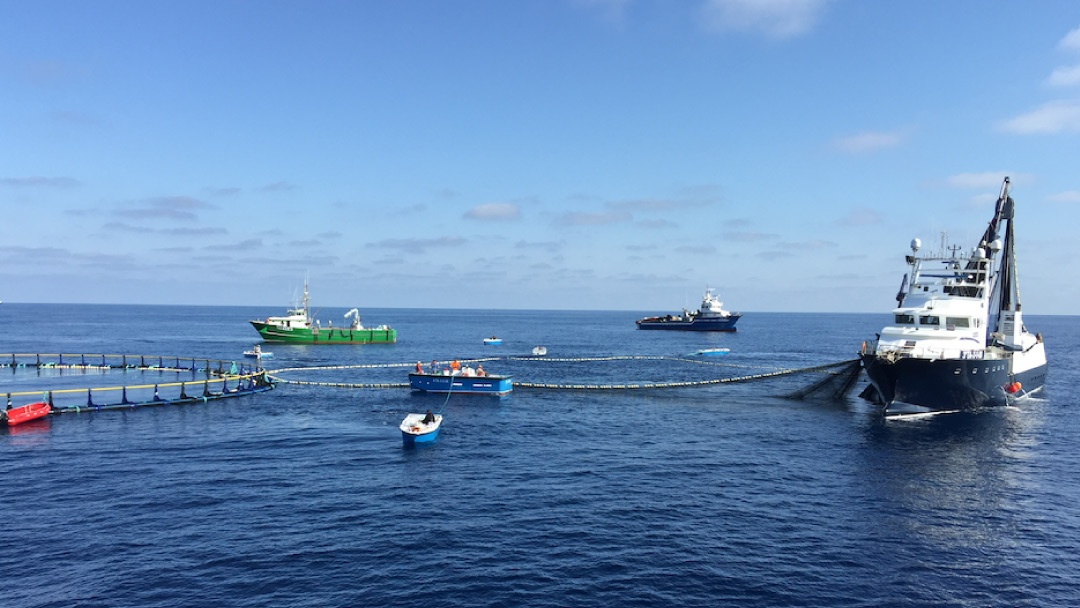"The paratroopers model predominates in the wineries"
- The wine industry is at a turning point: due to global oversupply, last year the government purchased thousands of litres for distillation. The Spanish Government subsidized the removal of green grapes. Similar measures have also begun to appear this year. But how have we come to this situation? That is the question asked by Eli Pagola in the Egonarria programme and answered by Esti Bes, about the evolution of vinification, the designation of origin, the wine models...

Like Rioja Alavesa wine, you will enjoy this Egonarria program:
Some ideas that have been mentioned are:
How has wine become a global super-supply?
Esti Bes has pointed out several factors: "On the one hand, it is not consumed so much, consumption has decreased in general in the world. The problem is for everyone: big wineries, small wineries and for everyone. But it's not just that." She warns that what some people are looking for is to sing, while the designation of origin Viñedo Alavés has prevailed in quality: "Then we do not take so much grapes". In this boost to quantity, Sarra explains that more vineyards have been placed than necessary: "The Governing Council of the D.O. Rioja has granted permits for planting new vineyards in areas where it was not necessary to plant, I mean that the land was not particularly good for it. And then, was it sold more like that before? Maybe there's overproduction and we're all in the same bag."
With regard to the measures that the institutions adopted in the face of overproduction, Besa says: "From the Basque Government it was proposed that the surplus wine should, of course, be distilled. This is how you get liquors and alcohol. Other subsidies from Spain for the launch of green grapes before harvest in July. It has been very difficult to receive subsidies, there have been many problems, a lot of bureaucracy, and yet, for example, one has been charged but the other has not… But they are one-off solutions, patches. We have to do something more general, so we cannot continue. If not, what are our vineyards for? ".
Parachutist capital
Presenter Pagola suggests that we see the warehouse building as small or large, but asks him since when a small warehouse is large. Bes' explanation: "Among the small wineries there are also different sizes. We, for example, have 8.5 hectares, perhaps one of the smallest. I remember that in 1991, when we returned to the town, we lived “well” two families (father and mother were one family and ours). With a lot of work, it seemed to live well. But today it seems expensive. Other families have between 10-12 and 16 hectares. Then there is one of the keys to the number of family members." Besa relates smallness to the viticulture carried out by the family: "Like husbands, and of course, you have to hire people from outside for the harvest, but we are small."
He explains that there has been a great evolution in the types of wineries: "When we went to the town, there were over 700 wineries in the Rioja Alavesa. Today, I don't know if we get to 200. What does this mean? That this small model is on the way out. And what model do we stay with? With the model of the parachutists who have arrived: those who do not live there, but are buying land and have the capital them."
Why create the brand Vineyards of Álava?
Pagola asks him why Riojano wine is the most appreciated worldwide to create his own brand of creation. Besa warns that "That's a question, it's not true. It will be famous and you will know it, but it is very cheap, Rioja wine is the cheapest one sold in the world.
He explains his discussions with the brand Rioja Sor: "This brand Sor is about 120 years old, but it has changed a lot. Among those present, small winemakers are 5%. Great wineries have power. We do not feel protected, we are only hindered, both in paper and in money and in inspection... everything is hindrance". It recalls that the request of Rioja Alavesa as a subbrand is very old: "Already in the last century, in the 1990s, it was being demanded and supported by the institutions, both the Council of Álava and the Basque Government. Then the Riojanos (well, that was Logroño and they have robbed us of the name) said no. We managed to have the Rioja Alavesa put on the bottle label, but 10 times smaller than the Rioja. That is the only thing we got. So we decided that we wanted to differentiate ourselves."
The reason for the creation of the brand "Vineyards of Álava" has remarked that "We are between the Sierra Toloño -Cantabrian and the Ebro. It is a strip of 40 kilometers, very small in width, but with a special time, poor land, special for the vineyards. Most vineyards are small, they are pending and that forces us to work a lot by hand... Many particularities are collected and then the wines leaving are different. We want to show it, what our wines are, how we do it. In addition, in our country, in Villabuena, we have 40 small wineries: it is the country with the highest number of wineries worldwide in proportion". There is a sign of character.










